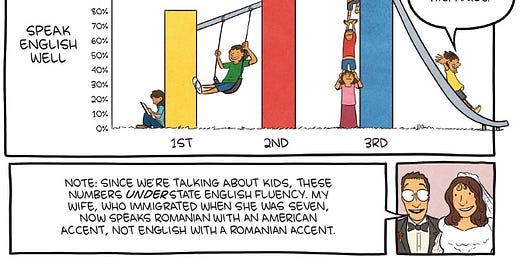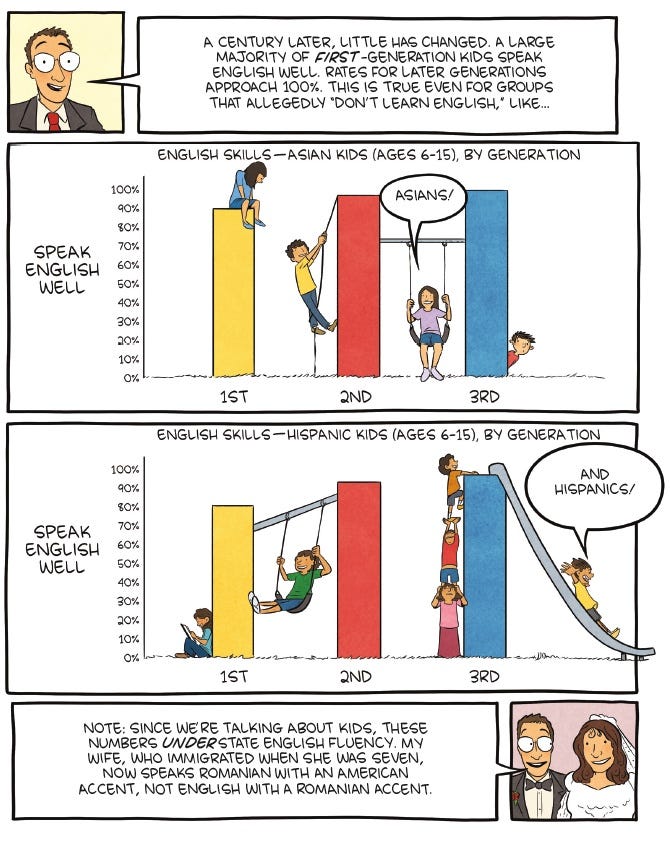I love to see kids reading Open Borders. When my daughter was five, she read it over my shoulder as I wrote it – and I knew I was right to make it a graphic novel. Since then, I’ve heard about dozens of kids enjoying the book. When I advertise it and add #ThinkOfTheChildren, I’m not joking. I really would like to put Open Borders in the hands of every kid on Earth.
The uncharitable explanation is that I want to brainwash ignorant children with absurd dogmas. I predictably reject that explanation. My story:
1. It is mainstream society that is guilty of “brainwashing” children in favor of immigration restrictions, with a steady mix of economic illiteracy, innumeracy, misanthropy, and status quo bias.
2. I, in contrast, calmly present a long list of well-crafted arguments, many of which are straightforward enough for bright, motivated children to understand.
3. Open Borders teaches many of the fundamental principles of economics en passant, including the causes of economic growth, the value of trade, and marginal productivity theory. So I’m not just telling kids about one important topic; I’m giving them tools to analyze a broad range of issues.
4. I’m making social science fun, as it should be.
5. Could I persuade children of falsehoods if I tried? Probably. But I know I’ve done my homework, so why shouldn’t I share what I’ve learned?
6. My conjecture: (a) People who learn popular views as children tend to believe them for the rest of their lives – whether or not those views are true. (b) People who learn unpopular falsehoods as children, in contrast, tend to abandon those views in adulthood. (c) People who learn unpopular truths are quite likely to retain them later in life.
7. Upshot: If you think you have some unpopular truths to share, share them with the young. If you’re right, you’ve plausibly saved them from being wrong for the rest of their lives. If you’re wrong, they’ll probably figure it out and change their minds.
8. Learning about Open Borders when you’re young almost certainly isn’t as effective as learning a new language when you’re young, but let’s give it a shot!
The post appeared first on Econlib.





The conclusion in 7. is inspiring. Maybe I should write a kid's graphic novel on morality and religion. If my ides are wrong, no harm done. The trouble would be sneaking it past parents.
That thing with the American accent in one's native language: it's true, even of my mother who learned American starting at 27 (!), and after 50 or so, had an American accent in her native German.